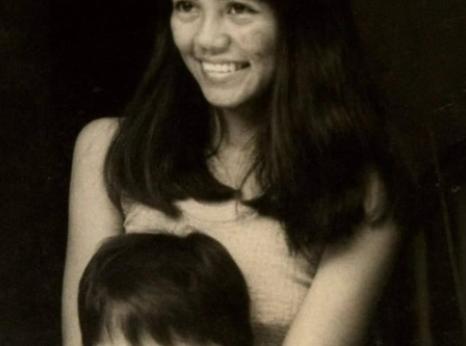Philippines: Torture Survivor Faces Third Arrest

This is the third time that the Philippine government has arrested activist and poet Adora Faye de Vera. The first was in 1976, when she survived torture and other ill-treatment, including sexual abuse, in the hands of the military during martial law, and again in 1983. An Amnesty International report published in 1982 about her arrest in 1976 stated:
“Adora Faye de Vera, then 22 years old, married with one child, was arrested without warrant by a joint team of intelligence and regular Philippine Constabulary (PC) personnel with two others, Rolando Federis and Flora Coronacion... on 1 October 1976... Between October 1976 and 30 June 1977, when Adora Faye de Vera was released, the three were transferred from one "safehouse" to another where they were subjected to continual torture and ill-treatment, during which the women were raped. Requests to notify their relatives, for legal counsel, for transfer to a regular detention centre and for medical care were refused... The two others arrested with Adora Faye de Vera, Rolando Federis and Flora Coronacion, are still missing and are presumed dead.”
Her husband, community organizer Manuel Manaog, was abducted in 1990 and remains missing.
Adora Faye was one of the ten plaintiffs in the class suit against the estate of the family of President Bongbong Marcos Jr, filed in the U.S in 1986 in pursuit of justice for victims of human rights abuses under martial law presided over by President Marcos’ late father, Ferdinand Marcos Sr. The U.S. court eventually ruled that Marcos Sr was guilty of human rights violations and that his estate was liable for damages.
On 24 August 2022, Adora Faye, 66, was arrested by armed individuals who claimed to be police officers, while she was in Quezon City to seek medical treatment for chronic asthma and anaemia. According to human rights group Karapatan, two women wearing uniforms came to her apartment and identified themselves as members of the Bureau of Fire Protection (BFP) who were there to check the place for marijuana. The two then left and came back with other individuals, armed and claiming to be police officers, and told Adora Faye she was under arrest.
She was taken to the airport, and then to a police station in Iloilo Province, hundreds of kilometres away from Quezon City. For two days Adora Faye was barred by the police from contacting her lawyer or her family. On 26 August, a family member, a lawyer and paralegals arrived at the police station after confirming reports of her whereabouts. She was examined by a doctor that afternoon.
The police accused Adora Faye of being a high-ranking member of the Communist Party of the Philippines (CPP), with standing arrest warrants for murder, frustrated murder and rebellion stemming from an alleged ambush incident in 2009 where security forces were killed.
The phenomenon of red-tagging – or the linking of activists and human rights defenders to armed groups, by both the government and unknown individuals – has been happening for decades. It intensified in the last few years under the administration of President Rodrigo Duterte, following the breakdown of peace talks between the government and the CPP in 2017. Duterte’s subsequent Executive Order (EO) 70 provides for a “Whole-of-Nation approach in defeating the Local Communist Terrorist Groups” and led to the creation of the National Task Force to End Local Communist Armed Conflict. Observers point to this moment in time as the beginning of a renewed campaign of red-tagging, threats and harassment against human rights defenders, political activists, lawyers, trade unionists and other targeted groups perceived to be affiliated with the progressive left.
Many groups, including Amnesty International and the UN High Commissioner for Human Rights, have called for the immediate end to this approach, expressing concern that the government’s dangerously broad counter-insurgency strategy has led to an increase in human rights violations against human rights defenders and political activists across the country.